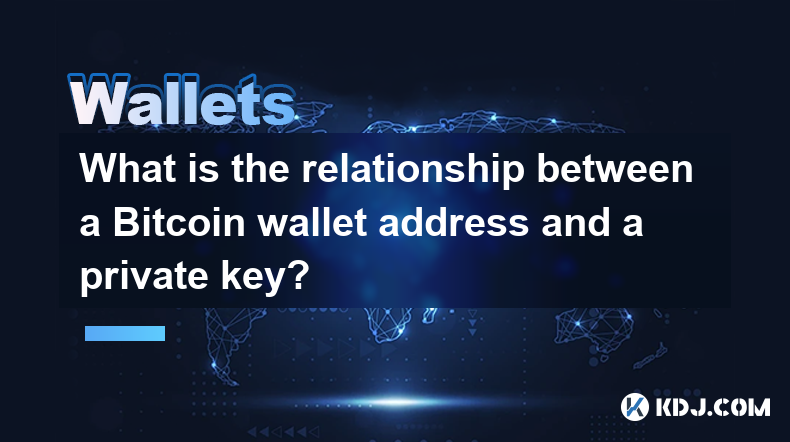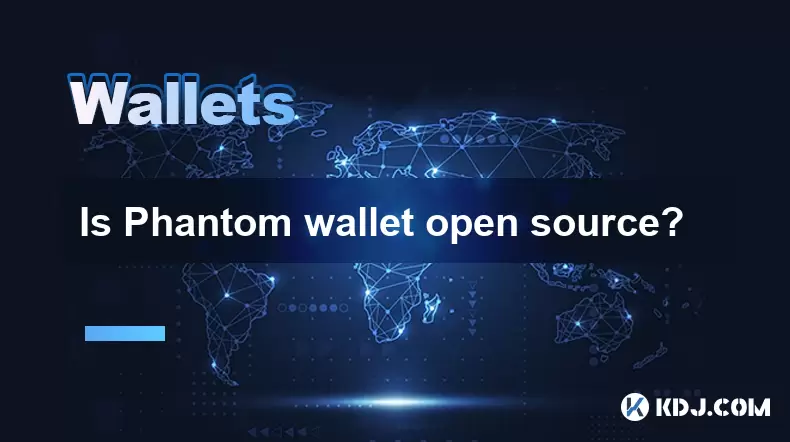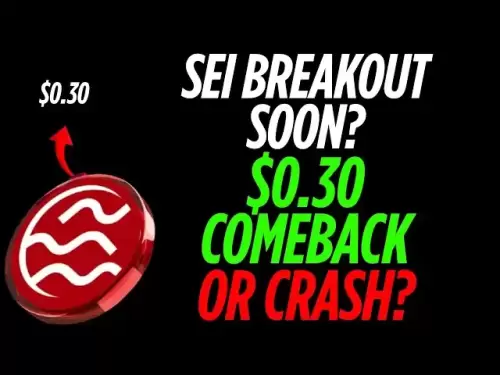-
 Bitcoin
Bitcoin $109,583.2239
0.19% -
 Ethereum
Ethereum $2,583.4612
0.48% -
 Tether USDt
Tether USDt $1.0003
-0.04% -
 XRP
XRP $2.2681
0.70% -
 BNB
BNB $659.9218
-0.52% -
 Solana
Solana $151.4961
-0.37% -
 USDC
USDC $0.9999
-0.02% -
 TRON
TRON $0.2861
1.20% -
 Dogecoin
Dogecoin $0.1718
0.04% -
 Cardano
Cardano $0.5960
-0.07% -
 Hyperliquid
Hyperliquid $40.1233
2.85% -
 Sui
Sui $2.9974
2.48% -
 Bitcoin Cash
Bitcoin Cash $497.1279
-1.76% -
 Chainlink
Chainlink $13.7275
-0.22% -
 UNUS SED LEO
UNUS SED LEO $9.0241
0.70% -
 Avalanche
Avalanche $18.5536
-0.88% -
 Stellar
Stellar $0.2421
1.39% -
 Toncoin
Toncoin $2.8593
-0.51% -
 Shiba Inu
Shiba Inu $0.0...01187
-0.07% -
 Litecoin
Litecoin $90.0023
2.90% -
 Hedera
Hedera $0.1590
2.79% -
 Monero
Monero $322.1495
0.00% -
 Polkadot
Polkadot $3.5453
-1.00% -
 Dai
Dai $1.0000
-0.01% -
 Bitget Token
Bitget Token $4.5733
-1.06% -
 Ethena USDe
Ethena USDe $1.0002
-0.01% -
 Uniswap
Uniswap $7.6345
3.03% -
 Aave
Aave $279.2583
0.47% -
 Pepe
Pepe $0.0...01003
-1.52% -
 Pi
Pi $0.4941
-0.32%
What is the relationship between a Bitcoin wallet address and a private key?
A Bitcoin address, like a bank account number, is public and safe to share, while the private key, analogous to a PIN, is secret and crucial for accessing and spending your Bitcoin; losing it means irreversible loss of funds.
Mar 17, 2025 at 05:50 am

What is the relationship between a Bitcoin wallet address and a private key?
Key Points:
- A Bitcoin wallet address is a publicly visible identifier, like a bank account number, used to receive Bitcoin. It's derived from the public key. Sharing this address is safe; it doesn't compromise your funds.
- A private key is a secret, cryptographic code, analogous to a bank PIN or password. It's essential for authorizing Bitcoin transactions from the associated wallet address. Losing or compromising your private key means losing access to your Bitcoin.
- The relationship is one-way: the public key (and thus the address) can be derived from the private key, but the private key cannot be derived from the public key. This is crucial for security.
- Different types of wallets handle private key management differently. Hardware wallets offer the highest level of security by storing the private key offline, while software wallets vary significantly in their security features.
Understanding the Relationship: A Deep Dive
- The Private Key: The Master Key to Your Bitcoin
Imagine your Bitcoin wallet as a digital bank account. Your private key is like the combination to your safe, or the PIN to your debit card. It's a long, randomly generated string of characters (typically hexadecimal) that acts as the sole authorization for spending the Bitcoin associated with a particular address. This key is cryptographically linked to a specific Bitcoin address, allowing you to prove ownership and authorize transactions. The private key itself is never directly used in a transaction broadcast to the network; rather, it's used to sign transactions, creating a digital signature that verifies your ownership. This signature is then included in the transaction, proving to the Bitcoin network that you indeed control the funds. The security of your Bitcoin hinges entirely on the secrecy of your private key. If someone gains access to your private key, they gain complete control over your Bitcoin, and there is no recovery mechanism. You are solely responsible for safeguarding your private key. Never share it with anyone, under any circumstances. Consider its importance equivalent to the security of your physical bank account, and implement strong security measures accordingly. Reputable wallet providers offer various security features, including multi-signature wallets, which require multiple private keys to authorize a transaction, further enhancing security. However, even with these advanced features, the responsibility for the secure storage and handling of your private keys remains entirely yours.
- The Public Key: Your Bitcoin Receiving Address
The public key is a cryptographic value derived from your private key using a one-way mathematical function. Think of it as your bank account number. You can freely share your public key (or its shortened representation, the Bitcoin address) with anyone who wants to send you Bitcoin. Sharing your public key does not compromise your funds, just as sharing your bank account number doesn't grant access to your funds. The Bitcoin network uses the public key to verify the authenticity of transactions initiated with the corresponding private key. The public key is used to create your Bitcoin address, which is a shortened, user-friendly representation of the public key. This address is what you'll share with others to receive Bitcoin. The address is designed for ease of use, and unlike the long string of characters of the private key or the public key, it’s much easier to remember and share. The Bitcoin network uses complex cryptographic techniques to ensure that the transaction is indeed signed by the owner of the funds, preventing fraud and double-spending. It’s important to note that while the public key can be derived from the private key, the reverse process is computationally infeasible, thanks to the cryptographic one-way function used in the process. This asymmetry is crucial for the security of the Bitcoin system.
- The Bitcoin Address: Your Public Identifier
Your Bitcoin address is a shortened version of your public key, designed for human readability. It's the identifier you use to receive Bitcoin. This is the address you share with others when they send you Bitcoin. It's safe to share your Bitcoin address because it only allows others to send you Bitcoin; it doesn't allow them to spend your Bitcoin. The address itself does not reveal your private key. Think of it as a mail slot: anyone can drop mail into it, but only you have the key (your private key) to access the contents. Multiple transactions can be associated with a single Bitcoin address. You can generate many Bitcoin addresses from a single private key, using different techniques depending on the wallet software you use. This practice enhances privacy by making it more difficult to track your transactions across multiple addresses. However, it's crucial to manage your different addresses carefully, keeping track of which private key corresponds to which address. Losing track of your private keys means losing access to the corresponding Bitcoin. Furthermore, some wallets utilize features that generate new addresses automatically for each incoming transaction, improving privacy further.
- Wallet Types and Private Key Management
Different types of Bitcoin wallets handle private key management in different ways. The security of your Bitcoin is directly tied to how securely your private key is stored and managed.
* **Hardware Wallets:** These are physical devices that store your private keys offline. They offer the highest level of security, as your private keys are never exposed to the internet or vulnerable to malware. Transactions are signed on the device itself. The device itself is highly secure and tamper-proof, making it exceptionally difficult for malicious actors to gain access to your private keys. However, loss or damage to the hardware wallet can lead to the loss of your Bitcoin.
* **Software Wallets:** These wallets store your private keys on your computer or mobile device. They are more convenient but present a higher risk of compromise due to malware, hacking, or device loss. Software wallets vary greatly in their security features. Some wallets use advanced encryption and security protocols to protect your private keys, while others offer less robust security. Carefully research and choose a reputable software wallet with a strong security track record.
* **Paper Wallets:** These wallets store your private key and public key in a printed format. While offering a degree of security against online attacks, they are vulnerable to physical damage or theft. Properly securing your paper wallet is paramount.
FAQs:
Q: Can I recover my Bitcoin if I lose my private key?
A: No. The private key is the only way to access and spend the Bitcoin associated with a specific address. There is no recovery mechanism if you lose your private key. This is why secure private key management is paramount.
Q: Is it safe to share my Bitcoin address?
A: Yes, it's safe to share your Bitcoin address. It's analogous to sharing your bank account number. It only allows others to send you Bitcoin; it doesn't allow them to spend your Bitcoin.
Q: What happens if someone gets my public key?
A: Obtaining your public key poses no risk to your funds. The public key is derived from the private key and cannot be used to reverse-engineer the private key.
Q: How can I protect my private key?
A: Use a reputable hardware wallet, regularly back up your wallet (if using software), and never share your private key with anyone. Consider using strong, unique passwords and enabling two-factor authentication whenever possible. Store your private key in a secure location, physically and digitally.
Q: Can I have multiple Bitcoin addresses from one private key?
A: Yes, you can generate many Bitcoin addresses from a single private key. This is a common practice to enhance privacy. However, keep meticulous records of which private key corresponds to which address.
Q: What is the difference between a private key and a seed phrase?
A: A seed phrase is a mnemonic phrase that can be used to regenerate your private keys. It's essentially a backup mechanism for your wallet. Losing your seed phrase is equivalent to losing your private keys. Protect your seed phrase with the same level of care as you would your private keys. Never share it with anyone.
Disclaimer:info@kdj.com
The information provided is not trading advice. kdj.com does not assume any responsibility for any investments made based on the information provided in this article. Cryptocurrencies are highly volatile and it is highly recommended that you invest with caution after thorough research!
If you believe that the content used on this website infringes your copyright, please contact us immediately (info@kdj.com) and we will delete it promptly.
- Samsung's Semiconductor Strategy: Demand Dilemmas and Future Directions
- 2025-07-04 04:30:13
- Gem, Cardano, Price Increase: What's Driving the Crypto Buzz?
- 2025-07-04 04:30:13
- Inside the Crypto Ecosystem: Big Eyes Crypto's Purr-fect Blend of Memes and Marine Conservation
- 2025-07-04 04:50:13
- Nano Labs, BNB, and a $1B War Chest: A New York Minute on Crypto's Latest Power Play
- 2025-07-04 04:35:12
- Crypto's Wild Ride: TOKEN6900, SPX6900, and the S&P 500 Connection
- 2025-07-04 03:50:13
- Pepe Unchained Price Rebound Hopes Dwindle Amidst Weak Volume
- 2025-07-04 03:55:13
Related knowledge

How to cancel a pending transaction in Phantom wallet?
Jul 03,2025 at 07:21pm
Understanding Pending Transactions in Phantom WalletA pending transaction in the Phantom wallet occurs when a user initiates a transfer or interaction with the Solana blockchain, but it hasn't yet been confirmed by the network. This can happen due to various reasons such as low transaction fees, network congestion, or incorrect gas settings. It's import...

How to see the estimated value of my tokens in Phantom wallet?
Jul 04,2025 at 12:21am
What is Phantom Wallet?Phantom wallet is one of the most popular cryptocurrency wallets designed for the Solana blockchain. It allows users to store, send, receive, and manage various tokens built on Solana, including SPL tokens and NFTs. The wallet offers a user-friendly interface, making it accessible for both beginners and advanced users in the crypt...

How to lock my Phantom wallet extension?
Jul 03,2025 at 11:14am
What Is the Phantom Wallet and Why Lock It?The Phantom wallet is a popular non-custodial cryptocurrency wallet designed for interacting with the Solana blockchain. Supporting both browser extensions and mobile apps, Phantom allows users to store, send, receive, and stake SOL tokens, as well as interact with decentralized applications (dApps). Securing y...

Does Phantom wallet offer two-factor authentication (2FA)?
Jul 03,2025 at 09:00am
Understanding Phantom Wallet and Its Security FeaturesPhantom wallet is a widely used non-custodial cryptocurrency wallet that supports the Solana blockchain. It allows users to store, send, receive, and interact with decentralized applications (dApps) seamlessly. As security is a top priority for any crypto wallet user, security features like two-facto...

What is "rent" on Solana and how does it affect my Phantom wallet?
Jul 02,2025 at 08:35pm
Understanding 'Rent' on SolanaIn the context of Solana, the term 'rent' refers to a storage fee that users pay for maintaining data on the blockchain. Unlike Ethereum, where storage costs are paid once via gas fees during contract deployment, Solana implements a recurring cost model to ensure efficient usage of network resources. This means that any acc...

Is Phantom wallet open source?
Jul 03,2025 at 12:29am
What is Phantom Wallet?Phantom wallet is a non-custodial cryptocurrency wallet primarily designed for the Solana blockchain. It allows users to store, send, receive, and interact with decentralized applications (dApps) on the Solana network. The wallet is available as a browser extension and mobile application, offering a seamless experience for both be...

How to cancel a pending transaction in Phantom wallet?
Jul 03,2025 at 07:21pm
Understanding Pending Transactions in Phantom WalletA pending transaction in the Phantom wallet occurs when a user initiates a transfer or interaction with the Solana blockchain, but it hasn't yet been confirmed by the network. This can happen due to various reasons such as low transaction fees, network congestion, or incorrect gas settings. It's import...

How to see the estimated value of my tokens in Phantom wallet?
Jul 04,2025 at 12:21am
What is Phantom Wallet?Phantom wallet is one of the most popular cryptocurrency wallets designed for the Solana blockchain. It allows users to store, send, receive, and manage various tokens built on Solana, including SPL tokens and NFTs. The wallet offers a user-friendly interface, making it accessible for both beginners and advanced users in the crypt...

How to lock my Phantom wallet extension?
Jul 03,2025 at 11:14am
What Is the Phantom Wallet and Why Lock It?The Phantom wallet is a popular non-custodial cryptocurrency wallet designed for interacting with the Solana blockchain. Supporting both browser extensions and mobile apps, Phantom allows users to store, send, receive, and stake SOL tokens, as well as interact with decentralized applications (dApps). Securing y...

Does Phantom wallet offer two-factor authentication (2FA)?
Jul 03,2025 at 09:00am
Understanding Phantom Wallet and Its Security FeaturesPhantom wallet is a widely used non-custodial cryptocurrency wallet that supports the Solana blockchain. It allows users to store, send, receive, and interact with decentralized applications (dApps) seamlessly. As security is a top priority for any crypto wallet user, security features like two-facto...

What is "rent" on Solana and how does it affect my Phantom wallet?
Jul 02,2025 at 08:35pm
Understanding 'Rent' on SolanaIn the context of Solana, the term 'rent' refers to a storage fee that users pay for maintaining data on the blockchain. Unlike Ethereum, where storage costs are paid once via gas fees during contract deployment, Solana implements a recurring cost model to ensure efficient usage of network resources. This means that any acc...

Is Phantom wallet open source?
Jul 03,2025 at 12:29am
What is Phantom Wallet?Phantom wallet is a non-custodial cryptocurrency wallet primarily designed for the Solana blockchain. It allows users to store, send, receive, and interact with decentralized applications (dApps) on the Solana network. The wallet is available as a browser extension and mobile application, offering a seamless experience for both be...
See all articles

























































































